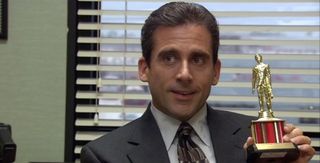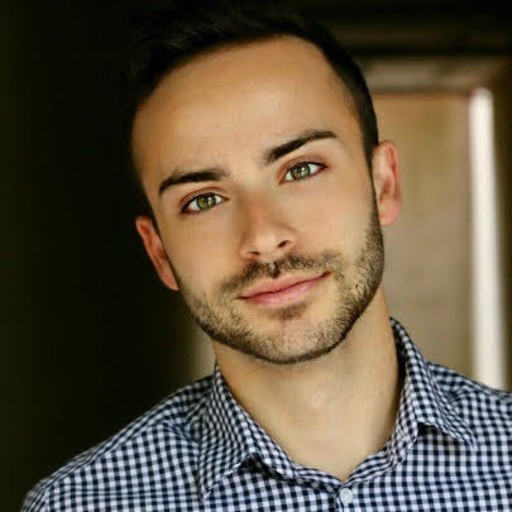Why The US Office Changed Michael Scott In A Fundamental Way

You know the old saying, “If it ain’t broke don’t fix it?”, well the flip side of that is making sure that if something is broken you accept it, and fix the damn thing. That’s exactly what the production team at the US version of The Office had to do with their biggest character. Michael Scott began his journey on The Office as a rather unlikeable character. After all, how did this incompetent buffoon manage to not only be put in a position of power, but somehow manage to keep it despite his shortcomings as a supervisor? Something had to be done, before the show's main character helped destroy it.
Speaking with The Believer, The Office writer Michael Schur opened up about this process of reworking Steve Carell’s Michael Scott:
The biggest moment was when we got picked up for season two by the skin of our teeth, and Greg [Daniels] sat everybody down and said, “Listen, the British show is one of the greatest pieces of comedy and art that’s ever been made. But because it was twelve episodes long, they were able to present an incredibly bleak worldview and have their main character be downbeat and sad. We’re trying to make this last for much longer than twelve episodes, so we need to make adjustments if we want it to survive.” We were all grumbling, like, “You don’t get it, man! You’re going to ruin this amazing thing.” He let us whine and then he was like, “We’re going to make the endings of our shows optimistic. We’re going to make Michael Scott a more sympathetic character.”
Well this is super enlightening. Thank goodness they made this change, because The Office has made me laugh and ugly cry more than most TV shows. As someone who started watching The Office a bit late, and had to binge-watch it in order to catch up, it did feel that midway through its second season, something changed. The show hit its stride, and I was having more fun watching Michael Scott attempt to gain respect and adoration by the people he managed.
In addition to Michael Scott becoming simultaneously more likable and pitiful, we were given more screen time with the unrequited love story of Jim and Pam, and the tertiary employees of Dunder Mifflin Paper Company were given more outrageous personalities. The show began to take a life of its own, separate from the UK version starring Ricky Gervais.
Schur also went on about the success of Greg's change, noting the showrunner was right:
And he was 1 billion percent right. So we still maintained his inappropriateness, his blind spot for how people viewed him, his desperate desire to be loved and admired, but we just made everybody be 10 percent nicer to him, and built in a sense that he was actually good at his job instead of completely incompetent—and that made all the difference.
This is really so spot on. Michael Scott would always be a bumbling character, but the moments where he went in and nailed being a successful paper salesman were always enlightening. He clearly got his management position for a reason- he knows paper better than all of his salespeople. As The Office continued to unravel Scott’s personality, we saw how terribly he wanted friendship, love, and a family. He went from being the frustrating character on the show to the one who could make us cry at the drop of a hat.
How methodically Michael Schur is able to analyze and adapt his approach to a character is clearly what helped him become such a force in the comedy world. After The Office, Schur went on to create, write, and produce Parks and Recreation, which took some of the most engaging aspects of The Office and made it even more cartoonish. Additionally, he would go on to create Brooklyn Nine-Nine, currently in its third season.
CINEMABLEND NEWSLETTER
Your Daily Blend of Entertainment News
Michael Scott once said "Sometimes I'll start a sentence and I don't even know where it's going. I just hope I find it along the way." It seems Schur did just that- he found the change he needed in Michael Scott along the way, and went on to find success in his future ventures.

Corey was born and raised in New Jersey. Graduated with degrees theater and literature from Ramapo College of New Jersey. After working in administrative theater for a year in New York, he started as the Weekend Editor at CinemaBlend. He's since been able to work himself up to reviews, phoners, and press junkets-- and is now able to appear on camera with some of his favorite actors... just not as he would have predicted as a kid. He's particularly proud of covering horror franchises like Scream and Halloween, as well as movie musicals like West Side Story. Favorite interviews include Steven Spielberg, Spike Lee, Jamie Lee Curtis, and more.
Most Popular





